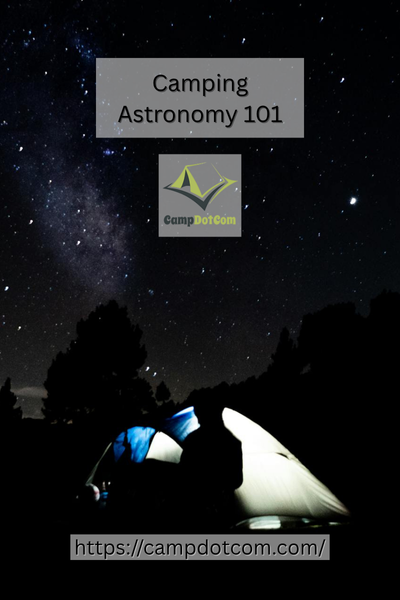If you have ever thought about combining a night in the wild with a sky full of stars, you are going to love diving into camping astronomy 101. It might sound fancy at first, but really, it is just about looking up and doing it in a place where the sky truly puts on a show.
The first time I tried mixing camping with astronomy, I was honestly a little nervous. I imagined some complicated setup with a giant telescope and a serious understanding of constellations. But it turned out to be much easier and a lot more magical than I expected.
Read More About Camping Astronomy 101

Why Camping Astronomy 101 Is the Perfect Combo
Here’s the thing: when you’re out camping, you’re already away from all that light pollution that ruins the night sky back home. Cities blast out so much light, even the brightest stars look shy. But out there? In the middle of the woods or a quiet beach? The sky throws a party just for you.
As an Amazon Associate, I earn from qualifying purchases. Some of the links in this article are affiliate links. This means that, at zero cost to you, I will earn an affiliate commission if you click through the link and finalize a purchase.
Camping astronomy 101 is basically about making the most of that darkness. No, you don’t need a NASA-approved telescope or need to memorize star charts.
More Things to Know About Camping Astronomy 101
Finding a comfortable spot to relax, bringing along a bit of patience, and having a warm sleeping bag on hand can really enhance the experience—after all, spending several hours outside under the vast night sky can quickly become chilly without proper preparation.

What You Really Need for Camping Astronomy 101
Okay, I’ll be honest — when I first packed for a night of stargazing, I totally overdid it. I dragged along a telescope that could probably see next week, a whole backpack of books, and enough snacks to feed a small army. Rookie mistake.
If you’re getting into camping astronomy 101, here’s what you actually need:
- A decent sleeping bag or camp chair (your neck will thank you)
- A warm jacket (the night air can sneak up on you)
- Red flashlight (regular ones mess up your night vision)
- Star app on your phone (so you can sound like a pro)
- Binoculars (optional but awesome)
See? Nothing crazy. And honestly, half the fun is lying back, picking out the Big Dipper, and maybe arguing with your buddy about whether that blinking light is a plane or a UFO.
Finding the Best Spot for Camping Astronomy 101
If you are serious about this (and you totally should be), location is everything. The darker the spot, the better. National parks, remote beaches, mountain tops are all treasure spots for stargazing.
One time I camped out in a desert and let me tell you, the Milky Way looked like it had been painted across the sky. I actually gasped out loud. Probably scared a few lizards.
When you’re picking your spot for your camping astronomy 101 adventure, check for “dark sky” areas. Some places are actually certified for having the least light pollution. Plus, there’s nothing quite like the bragging rights of saying, “Oh yeah, I saw Saturn last weekend with my own eyes.”
Tips for Getting the Most Out of Camping Astronomy 101
Here’s a little secret: patience is key. Stars don’t exactly sprint across the sky. Give yourself time. Let your eyes adjust to the dark (it takes about 20-30 minutes — so no quick peeks at your phone unless you’re using red light mode!).
Another tip? Bring a buddy. Not only is it safer, but it’s way more fun freaking out together when you spot a shooting star or a satellite gliding silently overhead. Plus, you can swap theories about alien life. Always entertaining.
And don’t be afraid to just… wonder. Honestly, camping astronomy 101 isn’t about getting every constellation perfect or naming every star. It’s about feeling tiny, amazed, and ridiculously connected to this massive, crazy universe.
Your Adventure Awaits Why You Should Try Camping Astronomy 101
If you are even thinking about giving camping astronomy 101 a shot, just do it. Seriously. You do not need to be an expert or have a wildly expensive setup. You just need a blanket of sky, a patch of Earth, and the curiosity to look up and say, “Whoa.”
Every time I go out, I find something new. A star I never noticed before, a meteor that streaks across the sky, or just that feeling that everything else can wait while I get lost in the stars for a little while.
So grab your gear, find a dark spot, and get ready to see the sky like you have never seen it before. And hey, if you spot a UFO, snap a picture for me, would you?
